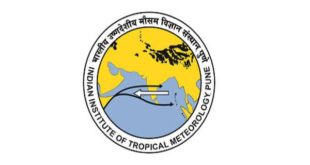CONTEXT:
Recently, the Union Education Minister has set up a task force for preparing a roadmap on imparting technical education in the mother tongue of students.
AIM:
- To achieve the Prime Minister’s vision that students may pursue the professional courses such as medicine, engineering, law, etc in their mother tongue.
- This is part of the National Education Policy (NEP) 2020 which suggests teaching in regional language till class 8 and enabling teaching the curriculum in a language which a student is comfortable in.
Function: It will take into consideration the suggestions made by various stakeholders and will submit a report in a month.
Reasons for imparting technical education in regional language:
- Enhances formative learning
- Practiced by Many Countries
- Creates Inclusion
GOVERNMENT INITIATIVES :
- The recently announced National Education Policy 2020 promotes education in regional languages.
- The Commission for Scientific and Technical Terminology (CSTT) is providing publication grants towards the publications of University Level Books in regional languages.
- It was established in 1961 to evolve technical terminology in all Indian Languages.
- The National Translation Mission (NTM) is being implemented through the Central Institute of Indian Languages (CIIL), Mysore under which the text books of various subjects prescribed in Universities and Colleges are being translated in all languages of the Eighth Schedule.
- CIIL was established in 1969 under the administrative control of the Ministry of Education.
- The Government of India is running a scheme known as “Protection and Preservation of Endangered Languages” for conservation of threatened languages.
- The University Grants Commission (UGC) also promotes regional languages in higher education courses in the country and supports nine Central Universities under the scheme “Establishment of Centre for Endangered Languages in Central Universities”.
- Recently, an initiative Namath Basai by Kerala State Government has proved to be very beneficial in educating children from tribal areas by adopting vernacular languages as medium of instruction.
Constitutional and Legal Provisions Safeguarding Regional Languages:
- Article 29 (Protection of interests of minorities) gives all citizens right to conserve their language and prohibits discrimination on the basis of language.
- Article 120 (Language to be used in Parliament) provides for use of Hindi or English for transactions of Parliament but gives the right to members of Parliament to express themselves in their mother tongue.
- Part XVII of the Indian Constitution deals with the official languages in Articles 343 to 351.
- Article 350A (Facilities for instruction in mother-tongue at primary stage)
- Article 350B (Special Officer for linguistic minorities)
- Article 351 (Directive for development of the Hindi language)
- The Eighth Schedule
- Right to Education (RTE) Act, 2009 says that the medium of instruction shall,as far as practicable, be in a child’s mother tongue.
CHALLENGES:
Providing technical education in regional languages requires teachers proficient in undertaking classes in the vernacular medium along with English, textbooks and reference materials in regional languages, besides technological assistance such as audio translation aids.
WAY FORWARD
Countries around the world have successfully substituted english with their mother tongues. The government should encourage original scientific writing, publication of books in regional languages to help this transition.
SOURCE: PIB
 Chinmaya IAS Academy – Current Affairs Chinmaya IAS Academy – Current Affairs
Chinmaya IAS Academy – Current Affairs Chinmaya IAS Academy – Current Affairs
